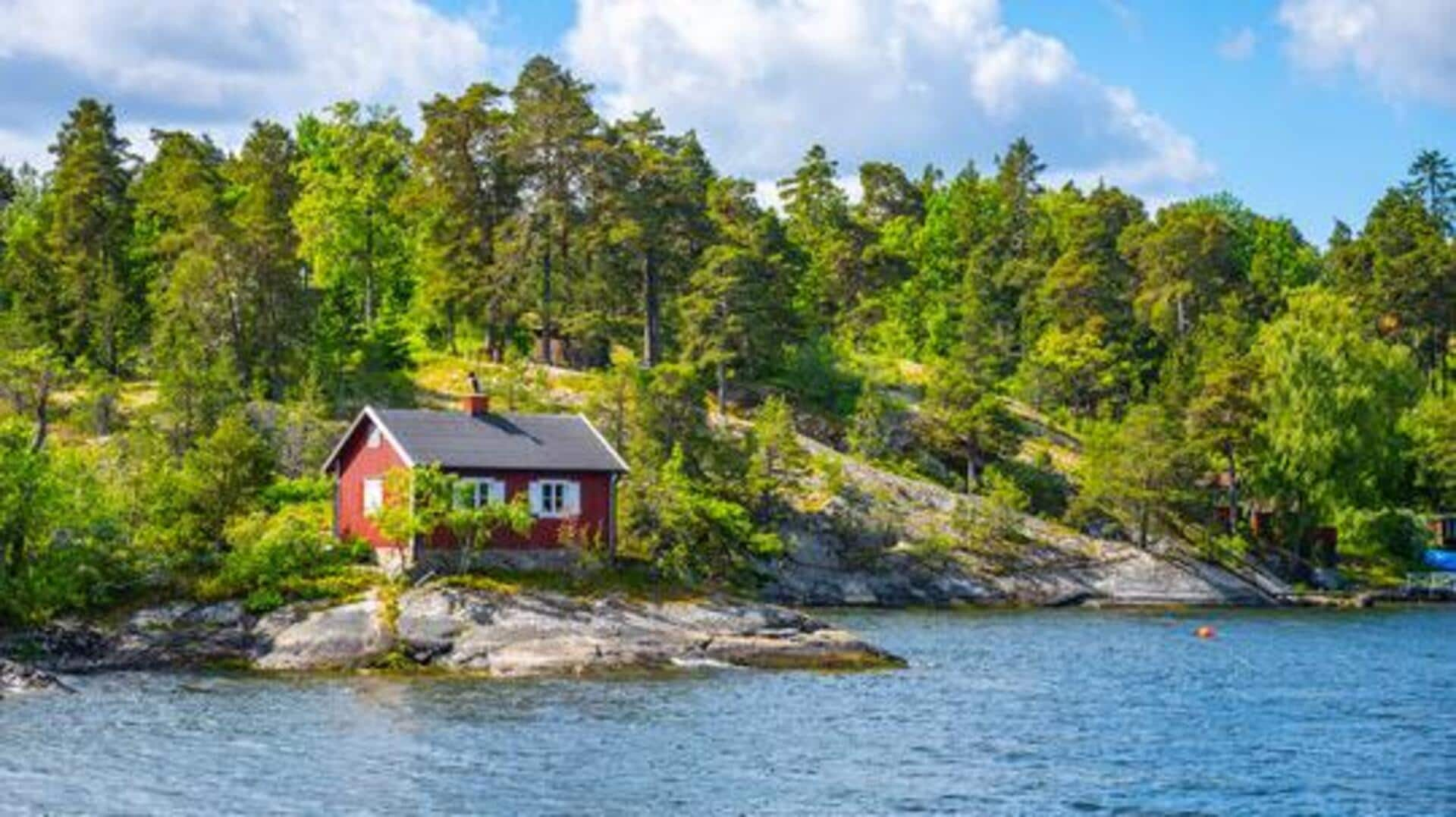
Island hopping in Sweden: Top spots, tips, and more
What's the story
If you are looking for a peaceful escape into nature, Sweden's archipelago is the perfect destination. Comprising thousands of islands across the coast, the region is still largely untouched by modern development. One can walk through lush forests, enjoy pristine beaches, and quaint villages that adorn these islands. Perfect for peaceful retreats, the archipelago lets you unwind and reconnect with nature far away from the city bustle.
Island proximity
Exploring Stockholm's nearby islands
Just a short boat ride away from Stockholm, a number of islands provide easy access to nature's beauty. Perfect for day trips or weekend getaways, the islands offer visitors hiking trails, kayaking routes, and picnic spots, along with stunning views of the Baltic Sea. The proximity to the capital makes it an ideal destination for travelers looking to get a taste of urban and island life.
Gotland Adventures
Embrace nature on Gotland
One of Sweden's largest islands, Gotland is famous for its unusual landscapes and rich history. From limestone cliffs and sandy beaches to the medieval architecture of Visby— a UNESCO World Heritage site—Gotland is a treat for explorers. Cyclists can take to the paths or visit the nature reserves filled with wildlife. Along with the natural beauty, Gotland is also rich culturally.
Åland Exploration
Discovering remote gems in Aland Islands
The Aland Islands serve as an autonomous region in between Sweden and Finland, consisting of over 6,500 islands. The region is famous for its clean surroundings where one can participate in activities such as sailing or fishing on calm waters. The locals have a culture that is both Swedish due to the region's historical association with Sweden and Finnish owing to their location.
Eco-friendly practices
Sustainable travel tips for archipelago visits
When visiting Sweden's stunning archipelago, choose public transportation such as ferries instead of private boats to reduce carbon emissions by 50%. Supporting local businesses also helps keep traditional livelihoods alive, keeping the pristine environment unspoiled. Such responsible tourism practices are imperative for maintaining the ecological balance for future generations to enjoy.